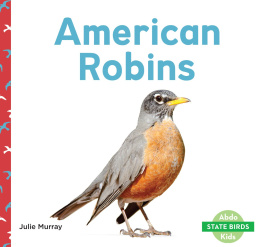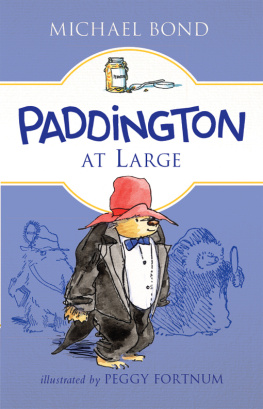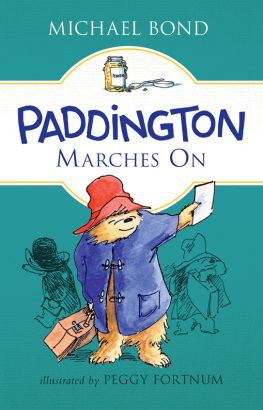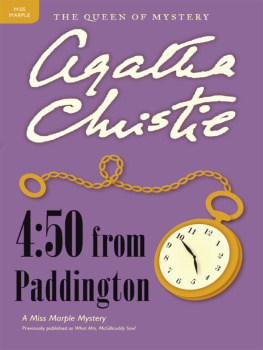PREFACE AND DEDICATION.
History is valuable, not merely for the facts which it records, but in a much higher degree for the lessons it teaches; for the Future will be benefited by the Past and the Present, more in proportion to the amount of truth developed and error eradicated by their teaching, than by the number of circumstances preserved.
To judge of the facts of history, it is necessary to have the liberty to know them; but it has often happened that historical facts have been so discreditable to the actors of the history, that the facts have been hidden, and fiction put in their place; and liberty to know has been refused to all, except the few who were to become participators in the actions.
There may be a few who know the history of Paddington well; but by far the greater part of those who now live in this parish have no clear notion of those circumstances which have influenced its past, and which affect its present condition. That Paddington has been transformed into a city of palaces, from a quiet rural village, is known to all; but by what agency that change has been effectedhow the profits of that change have been dispensed, and who have the greatest moral, if not legal, right to the chief share of those profitsis not so clearly understood.
In giving utterance to the facts contained in the following pages, I have argued freely, according to my conscience, on the effects produced on my own mind by the facts I have recounted; and I have not failed to shew how the rights of the people have been invaded, at almost every step, in the various changes which have occurred in Paddington. It is true that the facts contained in this Work, have not been collected under the superintendence of the lords of the soil; neither are they now published under their patronage. My sketch might have been more attractive, had the records in the possession of the Bishop of London and the Dean and Chapter of Westminster, been consulted; but I had no desire either to be refused the favour of inspecting them, or to have my hands tied by accepting it.
The Records in the various Public Record Offices are open to all; and to those Officers of the Rolls Chapel, the Tower, and Carlton Ride, as well as those at the British Museum, who kindly assisted me by directing my search for facts relative to Paddington, my best thanks are due. I am also indebted to several kind friends for advice and assistance, during the progress of this Work through the Press. Mr. B. H. Smart, the well-known English scholar, kindly suggested to me, some time since, the possibility of the word Paddington being derived from Padre ing tun, the Fathers town-meadow; and Sir Harry Dent Goring, of Bayswater House, was so good as to suggest another derivation, which I think it right to acknowledge in this place. In a note Sir Harry writes to me on this subject, he says, A Pad is a Sussex word now in common use for Pack-Horse * * * ings we have in that county by hundreds. Now, the carriers to the great City may have lodged, and had meadows for their Pack-Horses here. I humbly suggest, therefore, may not Paddington mean the Village at the Pack-Horse Meadows? It is to Dr. R. G. Latham I am indebted for pointing out to me Mr. Kembles opinion as the most probable origin of this word. With these additional remarks I must leave the decision of this question, of the origin of the name, to those learned linguists and antiquarians who desire to enter more deeply into the subject.
I regret not having been able to spend more time, than I have done, in researches for this Sketch; but I hope my efforts to discover facts, relative to Paddington, have not been so fruitless as to render this attempt entirely undeserving the attention of the inhabitants of this parish. The only apology I can offer to my readers for the faults in the Work, is, that the facts were sought out, and the ideas jotted down, in moments snatched from the performance of more important and more harassing duties. Should any one wish to know how it ever entered my head to give my friends and myself so much trouble, the reason is readily told:
Having lived in Paddington from 1838 to 1847, in perfect ignorance of its history, I was aroused, like the rest of the rate-payers, who lived in the parish, in the latter year, to a consciousness of the existence of some moving Power in the parish, by a sudden, and to me unaccountable increase in the demand on my purse. Having seen a considerable diminution in the number of houses for the poor, and a considerable increase in the dwellings of the rich, I was very anxious to ascertain the cause of this call on me for an increase in my contribution to the parochial burdens. I found that a re-assessment of the parish had been made; that my rates, and many others, were increased as much as 6d. in the pound on the former rental; that the assessment was most unequal and unjust; and that it was not at all required for the purpose for which it was said to be made. The excuse given for re-assessing the parish, was, that the county magistrates had raised the assessment; but I found, on looking into that question, that one half-penny in the pound per annum, taken on the old assessment, would have raised the extra sum required by the county. I came to the conclusion, therefore, that the governing body had not chosen to give out to the rate-payers the true motives for their actions; and finding that they had carried out their resolution in a most unjust manner, I thought I should not be doing my duty by discontinuing the enquiry at this point: I proceeded, and the following pages are the result of my subsequent investigations.
To shew how Paddington has increased, both in population and wealth, I have subjoined an abstract of the Census Returns since their first establishment, and some extracts from the Rate-books since 1838. For the amount of Rental for 1847,-48,-49, I am indebted to calculations made by Mr. Aveling, the Vestry-Clerk; but the amounts for those years do not include the assessment for the empty houses; for which 10,000 per annum may be added. The enormous increase in the Rental in the year 1847, arose chiefly from the extra sum laid on by the re-assessment made that year. The sums in the second column of that table represent the amounts levied by the two half-yearly rates.
CENSUS RETURNS FOR PADDINGTON.
Houses . | Population . |
Years . | Inhabit. | Uninhab. | Building. | Males. | Females | Persons. |
1801 | | | | 1011 | 1881 |
1811 | | | | 1994 | 2615 | 4609 |
1821 | 1139 | | | 2852 | 3624 | 6476 |
1831 | 1933 | | | 6278 | 8262 | 14,540 |










